Newsletter | The Sense Of An Ending
This is 'Viewing Room', a column by OTTplay's critic Rahul Desai, on the intersections of pop culture and life.
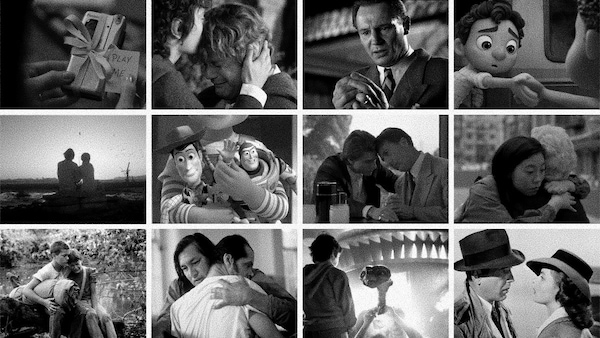
Last Updated: 05.37 PM, Apr 06, 2023
This column was originally published as part of our newsletter The Daily Show on April 4, 2023. Subscribe here. (We're awesome about not spamming your inbox!)
***
I IMAGINED A PROPER GOODBYE. One where he gets his mother to video-call me from his hospital room while he waves at the camera. One where he sends me a short email to let me know that he’s fading. One where he tells his sister to ask me to board the next flight before the doctors put him on the ventilator. One where I answer the phone and hear him breathing hard. Or one where he just leaves a note for me with all the right words.
There was no such scene. He went quietly, with his family next to him. I was not even close. One moment he was around, the next moment he was not. One moment I was drinking at our favourite bar without him, the next moment I was weeping at that bar without him. Nothing changed and nothing was the same. His last text to me was anything but dramatic; he remarked that the chemotherapy was hard this time. I had casually texted back, expecting a response once he got better.
I BLAME POPULAR CULTURE for the goodbye that never came. I blame social media, feelings, awareness, fables, labels. I blame myself for being foolish enough to ‘prepare’ for a tragedy. I played out all those fictional scenarios in my head — and sometimes shed a tear too — because I suspected that the facts weren’t as forgiving. Maybe I knew that reality isn’t a neat story; it’s just a boundless passage of time where humans come and go without warning, without finality, without any beginnings and endings. There’s also the other thing. All those scenarios imply that I was the only person — the only friend, the only loved one — he was leaving behind. I was not. Many hearts broke. But those hearts also broke because he was the only person — the only friend, the only loved one — leaving them behind. Grief possesses a singularity that makes you feel seen in a crowd. It is attentive and proud because, in that moment, all that matters is your relationship with the one who’s gone. All that matters is the space left vacant by one soul. Nobody else exists. The pain cannot be shared even if the loss is a collective one.
I’d like to believe that I was all he had because, in the weeks since, it feels like he was all I had. Maybe the vacuum feels a little more customised because we both were introverts who amplified the beats of connections. But he was an introvert who loved meeting people and making new friends. He loved listening more than talking, asking more than speaking. I was always the quiet and reclusive one — the textbook meme introvert — doubting my own social skills and overthinking my awkward exchanges with people. He was the analyst, I was the feeler. He was the number, I was the alphabet. We made an oddly zero-sum pair, where our similarities resembled our dissimilarities and our bonds shaped our solitude.
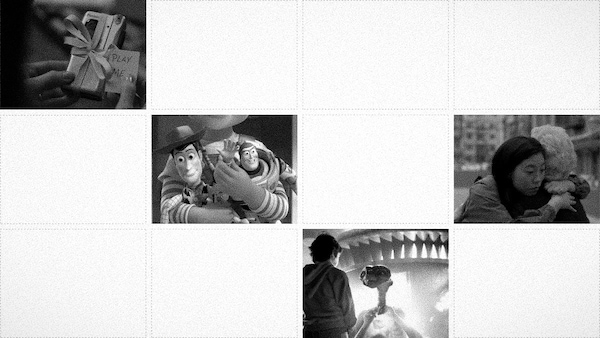
That’s really where self-pity kicks in, too. For someone who has an all-or-nothing approach to all sorts of relationships — for someone who is constantly caught in a cycle of expectation, disappointment and dwindling friendships — I find it cruel that the only person I never had an argument with is gone. What are the odds that the only friend who understood me, travelled with me and respected my skewed sense of attachment is no more? It makes me angry, of course, because I trusted in the omniscience of our equation. It makes me sad, also, because all my eggs were in this one basket. I envisioned us growing old and taking bucket-list trips together. I imagined a future where we threw darts on the map and laughed at other friends who were shackled by families, goals and commitments. I saw a life where we were neighbours and met at the local pub every evening. I saw a death where inevitability was the cornerstone of despair. We used to meet on Tuesdays when he worked in Mumbai, and silently drank to the idea of never having to be alone again.
But I am alone now. I feel terrible for myself, especially when I hear the kindness and sympathy in the voices of those who know how notoriously withdrawn I am. I can almost touch their fear of me going even deeper into my shell. I can almost smell their concerns about grief making me less immune to the shapelessness of love. I feel so terrible that I often forget he isn’t around. I forget where the social grammar of my gloom stems from. And I take my phone out to Whatsapp him about the irony of it all, expecting a response when he gets better. Then I remember that I’ve lost a language — the ability to be both thoughtful and crass at once. The power to visualise him reading my message and making me his priority for the next minute. The freedom to confide and gossip at once. The spirit to message him from every airport throughout his chemotherapy because he loved flying and I hated it. The vulnerability to realise, at my worst, that I can’t be all that bad if he likes me. The permission to wallow and swallow my notions of mental fortitude.
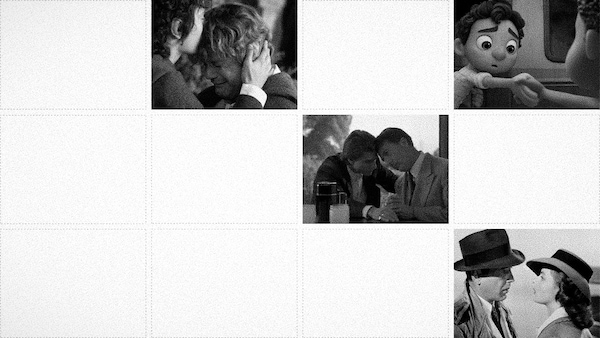
TECHNOLOGY plays a complicated role in the grieving process. The photos and selfies pop up on every platform as if they were clicked with the sole purpose of torturing me in 2023. He’s smiling everywhere; we’re all smiling too much. I could swear I even detected his behavioural quirks in some pictures — a brisk upward nod to greet a friend, a downward nod to greet an elder. But the culture of imagery is so common that the sight of his face is not a trigger. Not yet, at least. My texts with him date back to early 2015. I have more than eight years of ‘live’ conversation, and I ration my reading every night. For an hour or so, it’s like existing somewhere between the illusion of his presence and the memory of his absence. It’s comforting because I get nostalgic as if it’s only time — and not the person — that has passed. It’s crippling because I situate myself in the remnants of a relationship that will forever become a flashback. Despite my inclination to look for life in cinema and vice versa, this is the one instance I’d much rather read than watch a film. I’d much rather relive than relate.
I know why. For years now, I’ve turned to the movies to educate myself about the impending grief of losing a parent or a partner. There is no dearth of such stories. There is also no dearth of discourse and support for the emptiness that follows. A lot of it correctly estimates the emotional ubiquity of such relationships. The closeness — and subsequently, the heartbreak — is bound by a DNA that’s more recognisable. Everyone thinks they understand it because everyone is destined to experience it. It is socially acceptable to grieve a romantic or familial void.
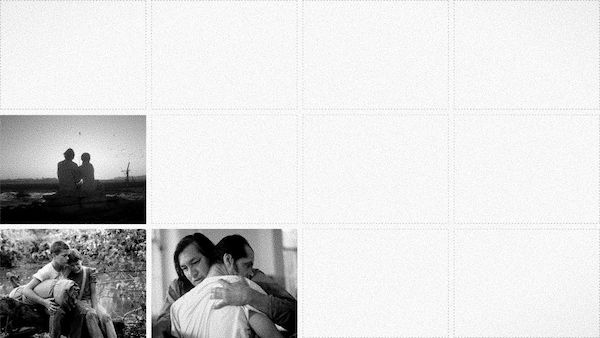
This ubiquity also extends to losing-a-friend stories. Most male friendships on screen are defined by a sense of physical togetherness. Sholay: The two bandits are inseparable till the end. Sherlock: The detective and his associate are thick as thieves when Holmes ‘perishes’ at the end of the second season, only to recklessly return after two years without even considering the moustache-grief of Watson. (I recently found myself rewatching that scene, where an allegedly dead Sherlock endeavours to surprise Watson at a restaurant — Watson’s rage is moving, because he’s mourned and suffered, but he’s also confused about the joy he feels to get his best friend back). Paddleton: Two middle-aged best friends who do everything together grapple with the prospect of one getting terminal cancer. (How I envy them for being able to anticipate the end and be in denial until it comes). Close: A 12-year-old boy struggles to cope with the guilt of being responsible for the suicide of his closest friend. Even The Banshees of Inisherin: Nobody dies, but one man gears through stages of grief after his best friend rejects his company. Every single film features a sibling-like intimacy, prompting the viewer to feel awful when one of them vanishes. The bromance is tangible because it’s based on a history of visual kinship.
But what about my kinship? What about the friends who can’t distinguish between a part and apart? What about the agents of the unsaid? There is no representative for it. We weren’t inseparable. We didn’t speak every day. We didn’t spend every waking hour with one another. We never hugged, and barely shook hands. We didn’t pine for each other’s company. We lived in separate countries for the last ten years. But it’s this distance that brought us closer. It’s this distance that pushed us to seek one another in faraway parts of the globe. It’s this distance that made us content enough to be detached and appreciative enough to be attached. It’s this distance that made us bask in each other’s silences while travelling, and be lonely together when we met. It’s this distance that made me forget that he was around and not around. It’s this distance that never placed on us the burden of hope and obligations. Distance is not cinematic; it’s barely even interesting. It is not the sort of absolute bond that’s built for art and literature. It’s the doomed language of missing a person without realising you’re missing them. It’s the star-crossed fate of grieving a person without acknowledging that they’re gone.
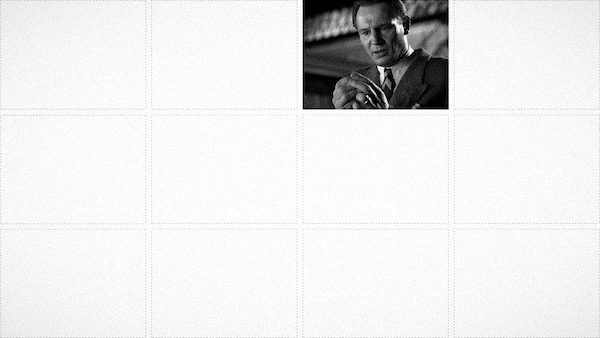
Tomorrow I will wake up and notice it’s been two weeks since we chatted. This isn’t unusual. But my grief is not sparked by his absence. It’s sparked by my own presence — by the in-between things I do, by the way I subconsciously scroll on my phone, by the way I eat the soft scrambled eggs that he liked, by the way I pour a drink, by the walk I take from the train to the street, by the awkward pauses in conversations, by the Whatsapp groups I avoid, by the friends I resent for not making plans, by the way I breathe and cough and bite the skin off my fingers, by the way I book movie tickets, by the way I miss Federer while scrolling through tennis scores. We once finished a bottle of rum on a footpath outside Dadar station on a rainy night. We also went two years without meeting in person. Movies are made on the former; life is crafted from the latter. Longing for him — his wicked grin, his sharp humour, his annoyingly cool attitude — is intrinsic to my being. I don’t remember a time before him. Living, then, is simply a rearrangement of my grief. It is the articulation of my loss. It’s not the distance between me and him; it’s the distance between who I am and who I used to be. So perhaps tomorrow I will wake up and become the goodbye that never came. One moment he’s reading my final message. The next moment he’s typing a reply for the rest of my days.
